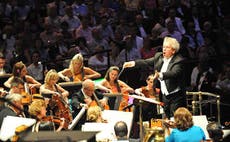Mea Culpa: ‘Elite: a select group that is superior to the rest of society’
Questions of style and usage in this week’s Independent


It may have been because I disagreed so strongly with the argument of Otto English’s article that I objected to the headline we put on it: “It’s not elitist to admit the public have no clue about Brexit.” Well, of course it is. That is a textbook example of an extreme kind of elitism: to think that decisions should be taken on behalf of people who know less than the chosen few.
What we meant was, “It’s not wrong...”. Which is an opinion, albeit one that I believe to be dangerously mistaken: I think it is an argument against democracy.
Cliche treacle: In an interesting article about Tulsi Gabbard, a Hawaii congresswoman who has presumptuously announced she is running for president, we ran into some cliche treacle. “In an effort to burnish her foreign policy credentials,” we wrote, “she has taken a proactive approach to international diplomacy that has brought her into contact with some prolific human-rights abusers.”
Burnishing is something people do only metaphorically these days. It doesn’t mean anything different from “polish”, and always conjures up for me an image of someone rubbing their medals with Brasso. Would it not be more engaging for the reader just to say what we mean, which is something like, “in an effort to persuade people that she is a foreign policy expert…”?
As for “proactive”, it seems to be just a longer word for “active”.
Anti-alumni: In a preview of the Oscars, we mentioned the prospects of awards for Damien Chazelle, a director, and Ryan Gosling, an actor. “However, come the Golden Globes, neither La La Land alumni were listed,” we said. Thanks to Paul Edwards for pointing out this garble.
Alumni is a silly word that should be avoided at all costs, and this is a good example of why. It is often used as a singular, although it is the Latin plural of alumnus (masculine) and alumna (feminine), meaning a former student.
But here we are using it as a plural – “were listed” – when the usual form after “neither” is the singular. If we rephrased it we would say, “neither person was listed”, rather than “neither people were listed”.
We could have said, “neither La La Land alumnus was listed”, then, but I think it would have been better to rewrite the sentence altogether to avoid the word: “However, come the Golden Globes, neither Chazelle nor Gosling, who worked together on La La Land, was listed.”
Forediction or precast? Another reader, David Pelling, wrote to say that he thought we had used the wrong word in a report about the weather. The headline was: “Deep freeze: -10C and up to 6 inches of snow predicted.” He thought this should be “forecast”, and said a forecast is a probabilistic estimate of what will happen based on data, whereas a prediction could be based on belief.
I don’t think there is much difference in meaning between the two words and thought he simply expected “weather” to be paired with the familiar “forecast”, but what does anyone else think?


Join our commenting forum
Join thought-provoking conversations, follow other Independent readers and see their replies